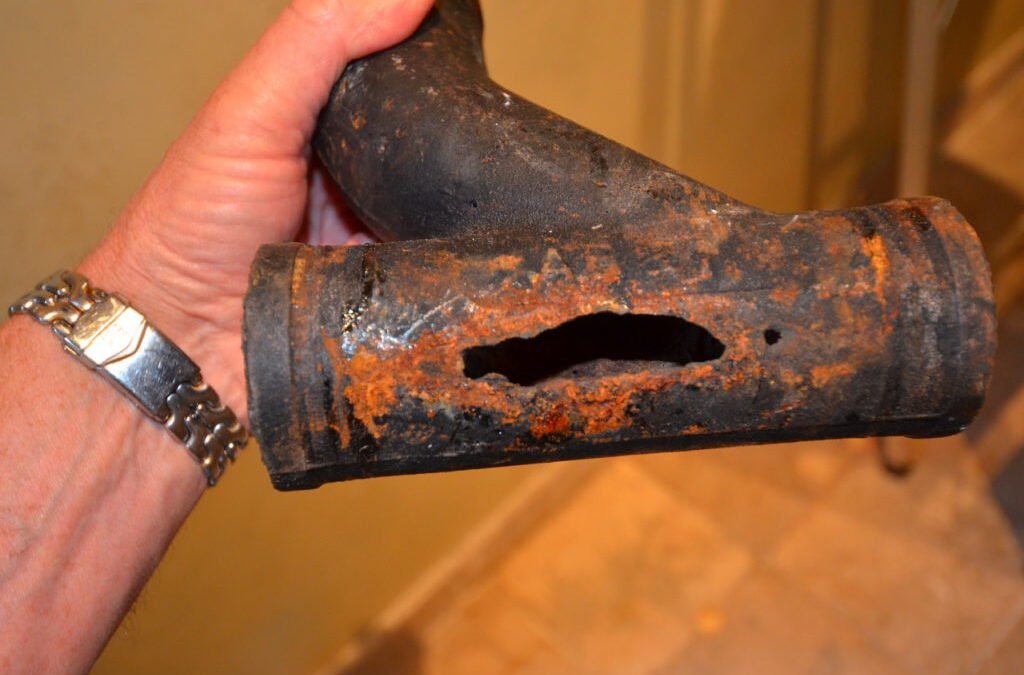We rarely think about our drains and pipes until something goes wrong.
But if you follow a few simple tips, you’ll keep your drains flowing and prevent potential problems down the road.
Here are a few questions and answers as well as tips for keeping your drains healthy.
Should I use chemical drain cleaners?
Think of using a chemical drain cleaner as a last resort. And, if you’re going to use one, understand the potential pitfalls.
- Chemical drain cleaners can damage older metal pipes and, if misused, plastic pipes as well.
- These drain cleaning solutions work by eating through a clog by breaking it down through a chemical reaction. The problem is that, over time, it can push the clog down deeper into the drain, and you will often need to have a professional come and clear it.
- Chemical cleaners have warnings for a reason – they are toxic to people and pets. They can irritate your throat and eyes if the area is not ventilated properly. And they can burn the skin if touched.
Are there any safe treatments I can use to clear or maintain my drains?
- The baking soda, vinegar, and hot water flush is one that will not cause any damage and can keep your drains clear with regular maintenance.
This “recipe” may not clear a severe clog, but it can get the water flowing again through a minor one and keep your drains cleaner if you do it at regular intervals.
The recipe is simple:
Pour ½ cup of baking soda over the drain
Follow with 1 cup of white vinegar
Allow the reaction to sit for about 5 minutes
Flush with hot water
- Sink plungers can be an effective way to clear a less-severe clog the same way that it works with a clogged toilet – by creating suction and pushing the water through with force.
- Non-toxic enzyme treatments, like the ones we carry in stock, can help you maintain your drains safely, eliminate odors, and are environmentally friendly. These treatments work by eating through the clog and can be useful in clearing clogs from hair, soap, and grease.
What goes into your drain may not always go through it.
Be aware of what you are putting in your drains – particularly your kitchen sink.
While every plumber will leave you with this tip after clearing a severe clog, few heed the advice.
Yes, we have garbage disposals, but they are not designed to take on every solid we scrape off our plates. (Read “Things You Should Never Put Down Your Garbage Disposal” HERE.)
For kitchen sinks
- Large pieces of food are best in the compost bin or trash.
- Coffee grounds
- Egg whites and eggshells
- Banana peels
- Grease and oils should never go down the drain (instead pour it into a can before washing the pot or pan)
For bathroom tubs and showers
Do you have to clear a lot of hair clogs from the shower or tubs? It may be worth putting a mesh screen over the drain that allows the water to move through but catches the hair.
Avoid putting the following into the sink or toilet:
- Flushable wipes (these can cause terrible clogs even though labeling may say they are safe for pipes)
- Cotton balls
- Paper towels
Are you dealing with a slow or clogged drain? Call the experts at Agentis, we’re ready to help.

